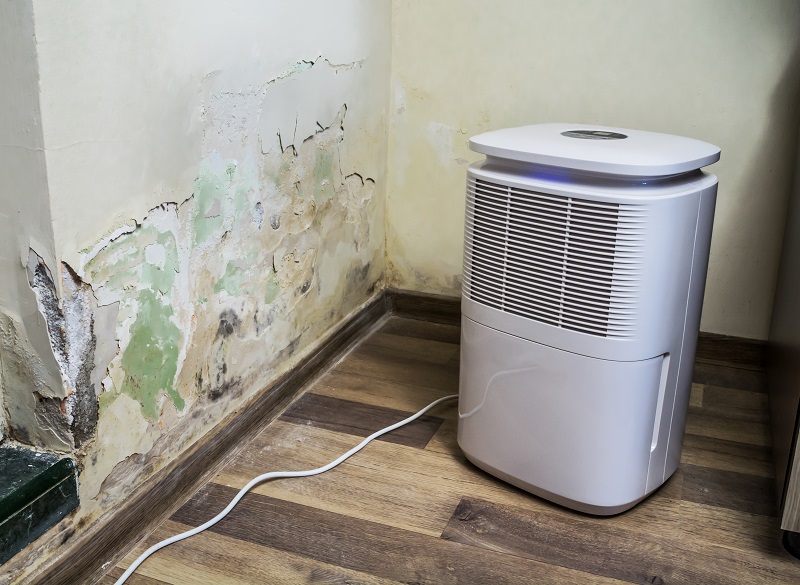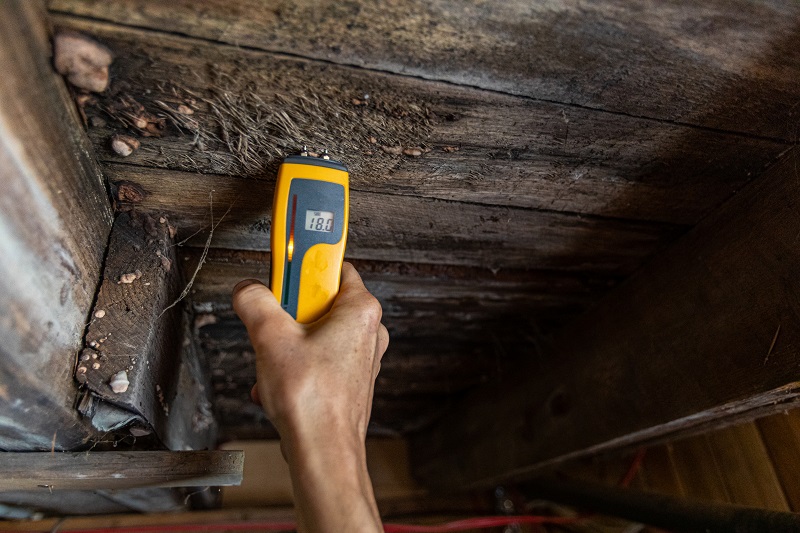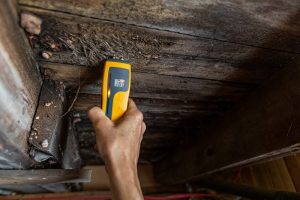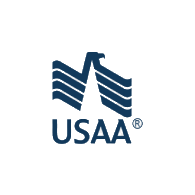Moving into a new home can be fun and exciting. While moving involves a lot of labor, it is nice to have a new place to make your own.
However, these positive feelings can quickly fade if you discover that your new home has mold.
If you didn’t encounter a mold problem before you closed on the home, discovering it upon moving in will take you by surprise.
Unfortunately, this situation is not uncommon, but it does require immediate action. Otherwise, your new home will suffer further harm, becoming even more damaged before you start making it your own. Additionally, the mold’s presence can potentially hinder your and your family’s health.
Here are the actions to take if you discover mold in your new home.
Table of Contents
What is Mold, and Why is It Problematic?
Mold is a type of fungus that is fuzzy in appearance but can be found in various colors: black, green, white, purple, and more. Its spores are naturally present in the air, so mold colonies can start to develop once it encounters the proper environment — one that offers mold spores both an organic food source and a moisture source.
Because of this, mold is often found growing in areas with high amounts of moisture, such as bathrooms and kitchens, and in places with leaky pipes, such as basements.
Drywall, wood, and other common building materials are often victim to mold growth due to their porous nature. Porous materials can absorb water, so when these items experience water damage, it can easily trigger mold growth.
This is problematic because the mold will damage whatever materials it affects. As the mold grows on the material, it is actually eating away at it because it is using it as a food source. With enough time, the mold will cause the affected materials to become structurally unstable.
Aside from property damage, mold can also be a threat to your health.
Exposure to mold can cause people to suffer from nasal congestion, breathing issues, skin irritation, and other allergic reactions. With prolonged exposure, mold can cause more serious problems like respiratory infections.
What Should You Do If Mold is in Your New Home?
If you buy a new home and discover mold has grown in it, then use the following tips to help you proceed.
Figure Out Who is at Fault
Prior to closing on your new home, you should have been informed of a mold problem. The home inspection report should have made note of mold growth or leaks that could lead to such fungal growth. However, the seller could have been unaware of the mold growth, so they could not disclose such an issue. Some homeowners take it upon themselves to deal with mold growth. An improper but common method of covering up mold growth is to simply paint over it. This may rid of the unsightly appearance that mold offers, but it does not resolve the mold problem.
To figure out who is at fault for the mold growth, hire another home inspector. They will offer a second opinion and be able to confirm whether the mold growth and ensuing damage had been missed by the original inspector.
Contact the Seller
In some cases, the seller could be willing to cover the costs of mold remediation and property repairs. So, it is worth reaching out to them to inform them of the mold growth and ensuing damage.
If they do not offer to pay for the removal and repairs, then ask if they are willing to help with the costs. If not and they are found to be at fault, then you may need to resort to legal help.

Reach Out to a Lawyer
While not ideal, legal help may be necessary in getting a liable seller to take responsibility for the mold damage the property experienced.
A lawyer can write up a demand letter, detailing the mold problem and reasons for the seller’s fault in the matter.
Get Help for Mold Removal
More often than not, mold is not an issue you should handle on your own. Even if the case of mold in your new home affects only a small area, trying to address the mold yourself exposes you to the fungus and puts you at risk for potential health problems.
Knowing this, it is in your best interest to reach out to a professional for mold removal help. Professional technicians are trained, equipped, and certified to provide mold remediation work in a safe manner. But do not hesitate to seek help. The longer the mold goes unaddressed, the worse the damage will be.
Professional Mold Remediation Services
ServiceMaster by Replacements can help with the mold found in your new home through the professional mold remediation services we offer in Union, NJ; Cranford, NJ; Long Branch, NJ; and the neighboring areas. We are available to respond to your mold emergency on a 24/7 basis.
Call (732) 842-6917 to inquire about our professional mold remediation services.








